Published: 11 December 2023
Master Workshops
Author: Magdalena Szczuka
In the current academic year 2023/2024, students of the School of Form have the unique opportunity to participate in Master Workshops, which are an integral part of the study programme and compulsory for all those who have completed their second year of study. The workshops will be run individually for full-time, part-time and english-speaking students.

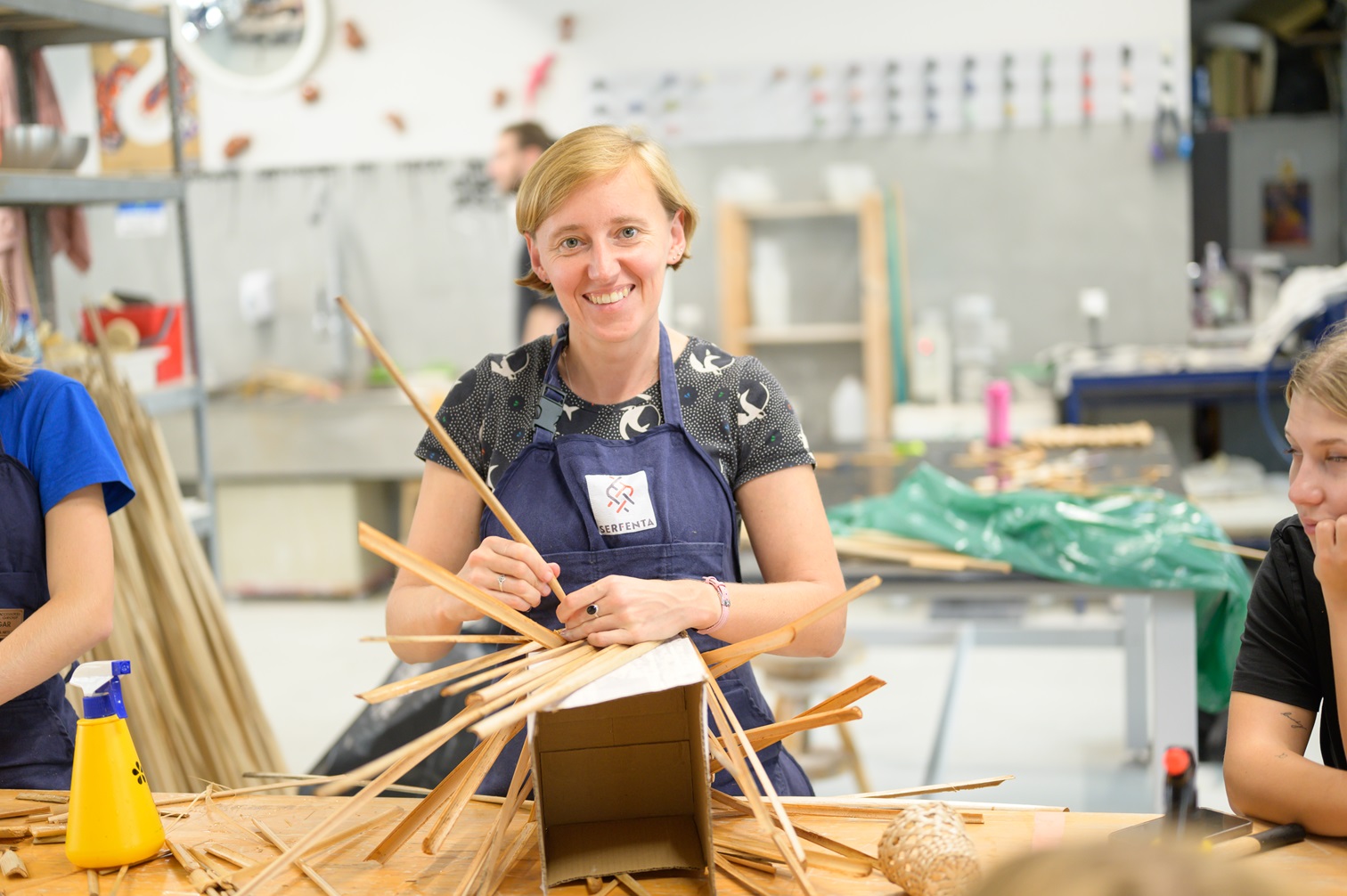
Master workshops with Bartosz Brylewski
Clay — from geological sediment to ceramics
Participants faced the challenge of working with a basic craft material – clay, extracted from its natural source. By collecting and preparing the material themselves, students discovered the practical skills involved in working with this material and had the opportunity to look at the processes and raw materials used to make everyday household items. They learned about the process of making ceramics from the moment the material is still in the ground, preparing samples of different types of clay and learning about their geological origins. The workshop programme also included an outdoor workshop combined with a clay collecting activity and a visit to a scientific institution, such as the Museum of the Earth, National Museum of Ethnography, National Archaeological Museum, to deepen the research.
The project task was to create material samples and concepts for functional objects inspired by both traditional and modern techniques. In addition, the workshop participants had to use the ecological potential of low-fired ceramics (earthenware) to design an object that responds to contemporary needs.
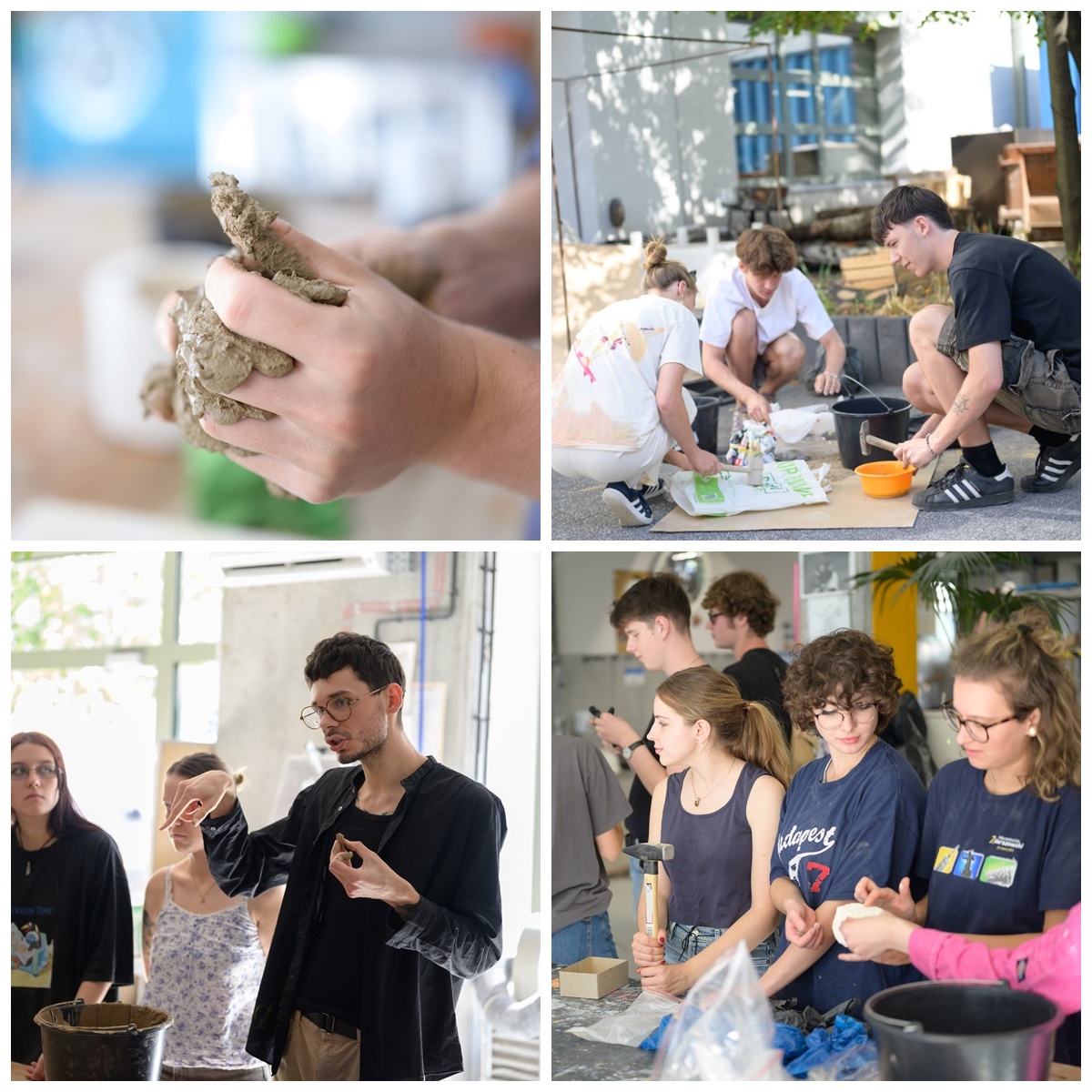
Master workshops with Barbara Niewiadomska
Press Illustration - illustrations for social and psychological reports
During the workshop, students focused on designing press illustrations. In class, they practiced techniques for extracting relevant content from extensive interviews and articles, which they later used to create illustrations. They also learned how to create sketches according to editorial requirements and how to present their concepts effectively. The criteria to complete the workshop included creating an illustration in any technique that not only met the content requirements but was also aesthetically appropriate for the cover illustration of the weekly magazine "BIG FORMAT." The illustrations selected by the weekly's editors will be published on the wyborcza.pl website.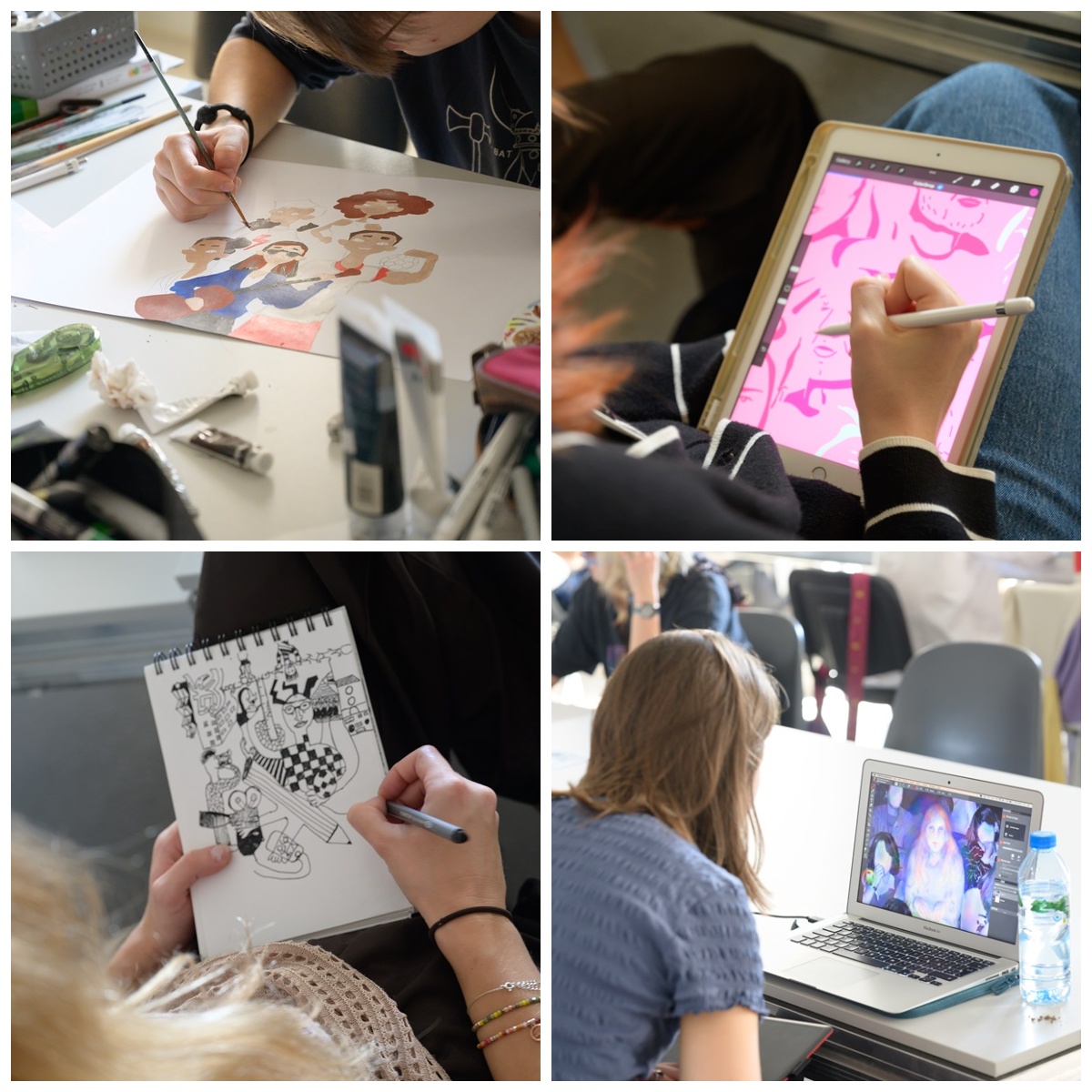
Master workshops with Monika Jakubiak
Trousers. Two legs or a skirt. Why do trousers go on the legs?
The aim of the workshops was to encourage participants to engage in hands-on work on prototypes and 3D models using fabric and sewing tools. The workshops encouraged exploration beyond computer and phone screens, drawing inspiration from folk exhibitions and integrating historical, geopolitical, environmental and cultural discoveries into the design process.
In group sessions, students were tasked with creating a mini studio and developing their projects based on an initial brief. They learned to sift through collected research, drawings and models, and to understand the importance of research in the creative process (R&D development). They also learned how to lead and participate in discussions and express their opinions in a large group. At the end of the workshops, the participants showed their final product during the presentation for evaluation.
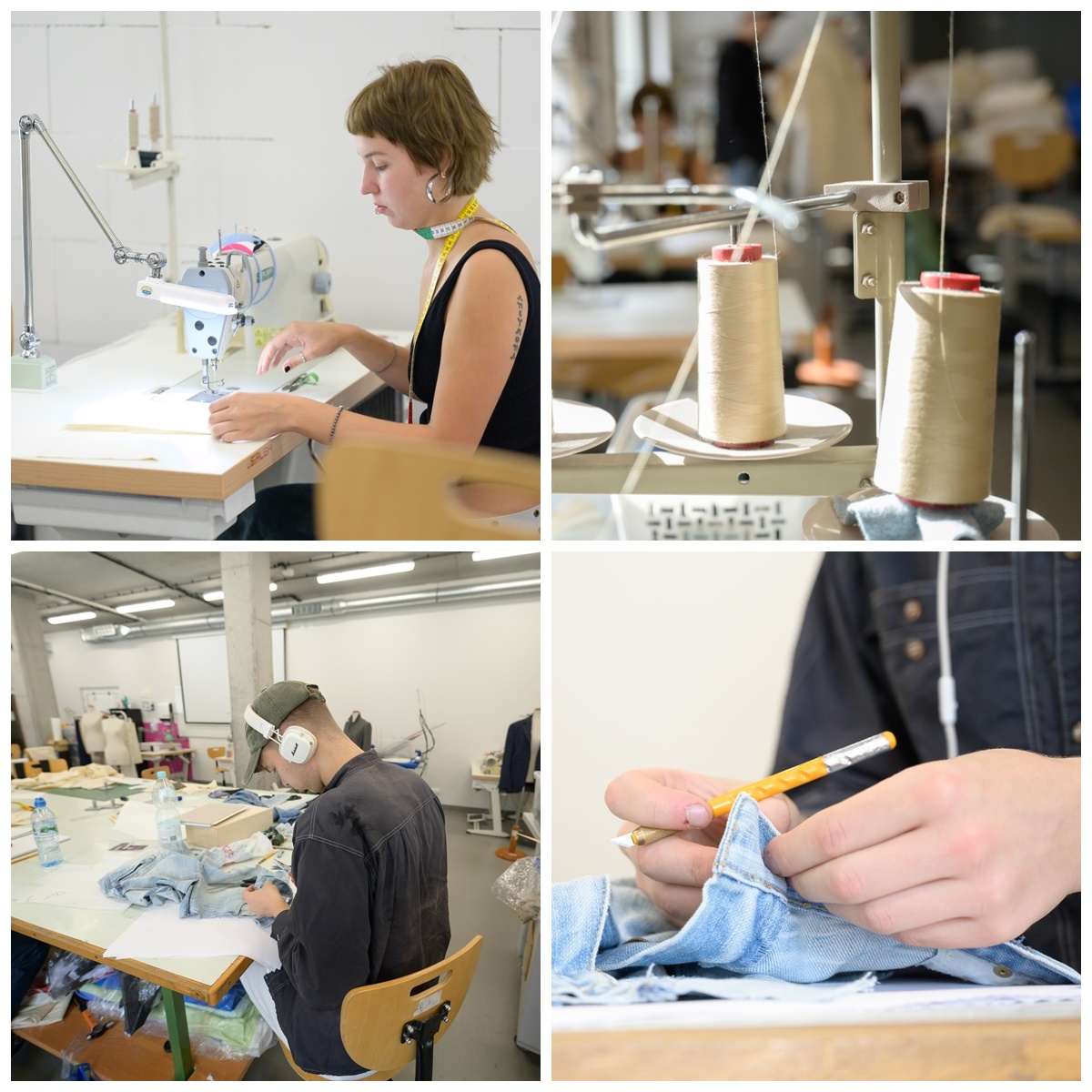
Master class workshop with Volha Bandarenko and Piotr Jedruszczak
Practical applications of AI
The aim of the course was to introduce students to the field of AI-based software and to develop their skills in applying AI to design. The main task was to design and implement a project that required creative thinking and understanding of AI techniques in the field of design.Master workshops with Natalia Wielebska & Renata Maj
Traffic Design
During a week-long workshop with production elements, students had the opportunity to explore the process of introducing art, design and graphics into public space. Participants designed various elements for selected buildings, such as signage (signs and address information), colors and architectural details (such as gates and lighting). They learned about traditional and modern materials and how to use them creatively, as well as the whole creative process: from concept to production, considering elements such as the brief, working with contractors and the specifics of creating in the city. Other topics included responsible design, consideration of users and public decision-makers, and strategies for completing and promoting projects.Master workshops with Simone De Iacobis & Małgorzata Kuciewicz
Nature Amplification
The main point of the workshops was to change the perspective, to stop seeing humans as separate from nature and architecture as something that isolates us further from it. Architecture was presented as an integral part of the ecosystem, influencing the health and diversity of cities. Analysis allowed students to understand what the universe is telling us by looking at its materiality and geological processes. The workshops focused on active observation, experimentation and the whole design process, not just the final outcomes. Participants learned to work with living matter and natural elements.Master workshops with Stefania Włostowska
Exploring Form in Body Anatomy
The aim of the class is to design simple outerwear using newspaper to create a custom pattern. Participants worked without rulers, measuring tape, or exact measurements, focusing on the senses of touch and sight. The task is to drape the newspaper to create outerwear with folds, seams, panels, or pockets, inspired by the body's anatomy. Then, with the help of others, students tailored the pattern and transferred it to the chosen material, which could be something flowing or stiff, depending on the project concept. For those just beginning their sewing adventure, simple and seamless shapes such as a kimono or cape were suggested.Master workshop with Patrick Mogilnicki
Book by its cover
The workshop will focus on the role of book covers, asking whether they can attract readers or, on the contrary, repel them. Students will analyze whether the cover reflects the content of the book and whether the designers are familiar with its content. Participants will have the opportunity to discuss whether the designer's approach takes into account the reader's preferences or whether it is purely marketing driven. As part of the workshop, students will design the cover of a selected book, discussing sketches and concepts and selecting appropriate elements such as illustrations, color schemes or typography to best capture the character of the literature.Master workshops with Paulina Matusiak
Theater Poster — Image and Typography
The aim of the workshop is to introduce students to the process of creating a poster that combines elements of image (photography/illustration/collage) and typography. Students will work on the concept of the image, its style, organizing a photo shoot and designing the typography. The assessment will include the presentation of the entire design process in digital form, including sketches, documentation of the photo session, typographic proofs and the final poster design. In addition, physical prints of the posters will be presented during the assessment.Master workshops with Iga Węglińska and Iza Rutkowska
Future-centered design: What if?
The workshop focuses on the future of humanity in 20-30 years (between 2040 and 2050), taking into account social, climate, political and technological changes. Participants will create scenarios about the future and what awaits us in the coming decades. The result will be a group project aimed at the inhabitants of our planet in the year 2050.Master workshops with Marcin Nowicki
Lost in Translation
Workshops on visual communication will focus on the role of the designer as a translator between different entities — humans, artificial intelligence and animals. The workshop will include an introduction to visual communication, understanding the role of design as a process of translating content into visual language, and exploring the diversity of audiences. Participants will practice translating digital projects into analogue forms, designing communication that considers diverse audiences, and applying artificial intelligence to visual communication.Master workshops with Martyna Golik
Patchwork & Quilting
The workshops focus on the theoretical and practical skills of patchwork and quilting techniques, which involve joining pieces of fabric and layers of materials to create a three-dimensional composition. The aim of the workshop is to plan and create an original quilt or patchwork using scraps and remnants. Each object created should have a specific purpose and relate to a defined area of design, such as fashion or interiors.Master workshops with Katarzyna Schmidt-Przewoźna
Natural dyeing workshop
The workshop will focus on the process of natural dyeing using dyes of plant and animal origin. Participants will explore different materials, techniques of historical fabric decoration and their application in the design of artistic textiles. Through practical exercises, groups will create samples of dyed fabrics, experimenting with different methods and dyes.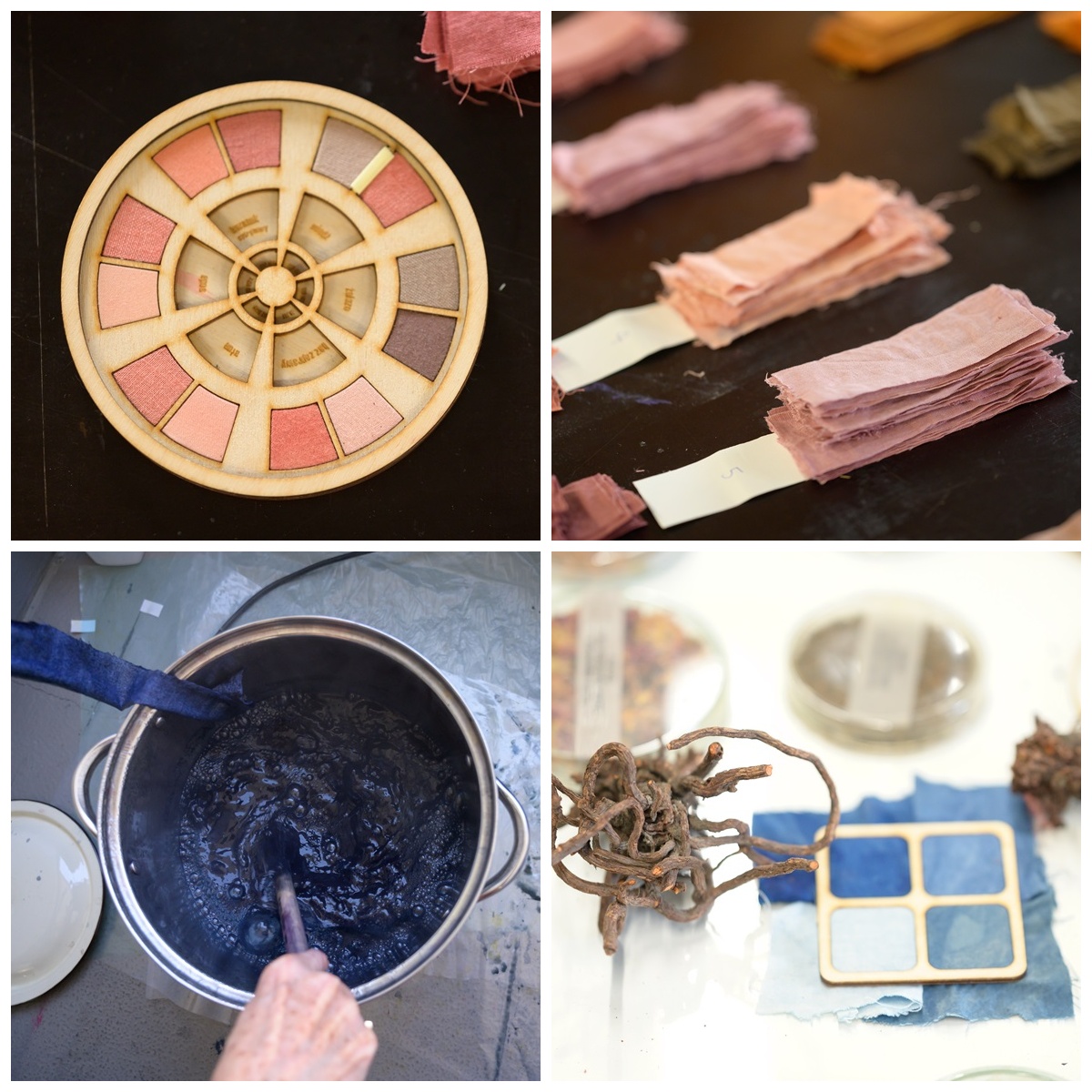
Master workshops with Łucja Cieślar
Bulrush — material science and experimentation workshop
By the end of the workshops, each participant had acquired not only the knowledge but also the essential skills needed to work with bulrush - a natural weaving material derived from the cattail plant (Typha latifolia). By working with this material, the students explored its full potential and also gained insights into the contemporary conditions and social aspects associated with the craft of weaving.
As part of the assessment, participants had to present a concept for further project work with bulrush, taking into account the social issues and problems discussed in class.